Kellogg's UK operations sink to loss as sales rise past £1bn

Despite the growing popularity of its cereals and Pringles pushing sales beyond the £1bn mark, the combined UK operations of Kellogg’s have slipped into a loss. The company operates two separate entities in the UK from its Salford headquarters: Kellogg Marketing and Sales Company (UK) and Kellogg Company of Great Britain.
Following the rebranding and splitting of the group's ultimate parent company last year, favourites such as Pringles, Pop-Tarts and Nutri-Grain now fall under the Kellanova brand, joining Frosties, Special K and Coco Pops. Newly-filed accounts with Companies House for 2023 show that Kellogg Marketing and Sales Company (UK) reported a turnover of £975.5m, an increase from £913.9m in 2022, as reported by City AM.
Its pre-tax profit also rose from £24.1m to £28.5m over the same period. However, accounts for Kellogg Company of Great Britain reveal its turnover remained steady at £143m, but it shifted from a pre-tax profit of £13.6m to a loss of £61m.
Despite the loss, Kellogg Company of Great Britain issued a dividend of £176.1m in the year. These accounts were filed with Companies House later than the 30 September deadline.
This news follows Kellogg’s confirmation in May of plans to shut its Manchester-based factory, resulting in the loss of hundreds of jobs. The company announced it would close its Trafford Park factory towards the end of 2026, leading to around 360 job losses.
The Wrexham factories and Salford headquarters of the company, which currently provide employment for approximately 1,000 individuals, remain unaffected by this development. The financial statements have been disclosed following the August announcement that Mars, the conglomerate known for brands such as M&M's, Snickers, and Skittles, agreed to acquire food behemoth Kellanova for $35.9bn (£27.9bn).
Kellanova came into existence after Kellogg Co, established in 1906, divided into three separate entities. The transaction is anticipated to be finalised in the first half of the forthcoming year.
In a statement endorsed by the board, Kellogg Marketing and Sales Company commented: "Growth in turnover was primarily driven by an increase in snacks net sales, led by sustained momentum in Pringles, driven by innovation, effective advertising and successful consumer promotions."
"Cereal net sales were also up in the year, however, partially offset by unfavourable foreign currency."
"Reported operating profit increased primarily due to overall higher sales, which was driven by both volume and price mix."
Recommend
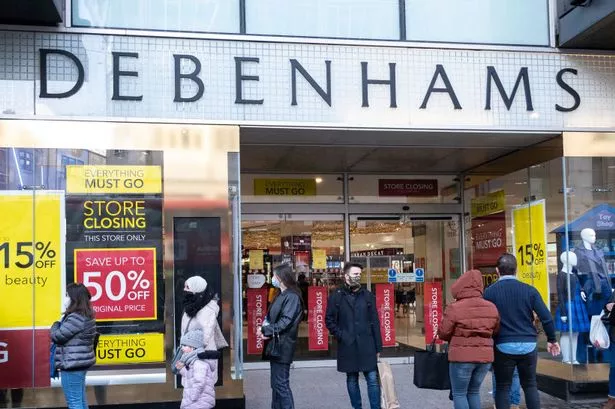

Retail & Consumer
Debenhams makes first profit since Boohoo rescue despite sales halving
Debenhams, acquired by Boohoo from administration in 2021, has reported a turnaround to profitability even as revenues experienced a more than 50% reduction. In the period ending 29 February, 2024, the retailer recorded a pre-tax profit of £4.5m, contrasting sharply with a pre-tax loss of £732,000 in the previous year. Revenue declined to £39.7m from the earlier figure of £87.1m. Looking back further, Debenhams' revenue was £56.9m, alongside a pre-tax loss of £11.7m, as reported by City AM. Nonetheless, the company's gross merchandise value saw a considerable increase to £359.6m — a 65% rise — and its EBITDA also doubled, reaching £10.4m. UK sales decreased from £73.5m to £39.7m, while international revenue streams dried up, having contributed £13.5m in the preceding financial cycle. The workforce size at Debenhams also dropped significantly, falling from 115 employees to just 24 over the course of the year. The numbers detailed belong solely to DBZ Marketplace Online Ltd, operating under the Debenhams name, not to be confused with Debenhams Brands Online Ltd, which includes such labels as Burton, Dorothy Perkins, Wallis, and Oasis within the Boohoo portfolio. This newer entity, incorporated in May 2023, achieved sales totalling £138.6m and a pre-tax profit of £950,000 for the year ending on 29 February, 2024. Dan Finley, CEO of Boohoo and Debenhams, commented on the results: "Debenhams is an iconic British heritage brand. ". The company behind the revival of Debenhams has expressed optimism about its transformation into "Britain’s online department store." A spokesperson for the firm stated: "We bought it out of administration and are making great progress transforming it into Britain’s online department store." They added, "The market place model is stock-light, capital-light and highly profitable, as these results show. There is lots of opportunity ahead and we are focused on realising that for the benefit of all shareholders." The positive sentiment was further underscored by the announcement: "We have previously announced that the current year started strongly for Debenhams." These latest updates on Debenhams follow the disclosure of financial outcomes for other brands under the Boohoo umbrella towards the end of November. Notably, Prettylittlething reported a shift from a pre-tax profit of £22m to a loss of £6.5m, with revenue dropping from £634.1m to £475.8m. While Boohoo regularly reports its group results to the London Stock Exchange, detailed financial accounts for its individual brands are only made public annually via Companies House filings.


Retail & Consumer
Avanti West Coast achieves £1bn turnover despite ranking low on UK reliability charts
Despite being named one of the least reliable rail operators in Britain, Avanti West Coast's turnover exceeded £1bn last year. The train operator, a joint venture between Firstgroup and Italian rail firm Trenitalia, reported a turnover of £1.01bn for the 12 months to 31 March, 2024, an increase from £967.4m. However, Companies House filings reveal that pre-tax profit dipped from £12.8m to £12.3m over the same period. Avanti, which took over the west coast mainline from Virgin Trains in December 2019, is 70% owned by FirstGroup and 30% by Trenitalia, as reported by City AM. It operates services between London Euston and several cities including Birmingham, Liverpool, Manchester, and Glasgow. The accounts also show a dividend of £8.1m for the year, down from £11m. Passenger revenue totalled just over £1bn, up from £808.9m, with passenger numbers at 83% of pre-pandemic levels, up from 67%. Avanti West Coast returned a net payment of £21.9m to the Department for Transport (DfT) during the year, following a subsidy of £92.4m the previous year. According to the Office of Rail and Road, Avanti West Coast had the third worst reliability of all operators in Britain in the year to 31 March, 2024. In the past year, an equivalent of one in 15 trains (6.9%) were cancelled, including pre-emptive cancellations before 10pm the previous night due to crew shortages. Avanti West Coast's contract, which could last up to nine years, may be cut short by the government with just three months' notice after the initial three-year period. Meanwhile, the new Labour administration is devising a strategy to renationalise nearly all passenger rail services within five years. The plan involves transferring private train company contracts to Great British Railways, a new public body, as they expire. Avanti West Coast has expressed a 'singular focus' on service delivery. A board-approved statement read: "The company is working hard with a singular focus on delivering the service that customers expect." It also noted: "The company has reached an agreement with the relevant trade unions on the incremental use of rest day working for train drivers, which helps support operational resilience." Furthermore, the statement highlighted ongoing collaborations: "The company also continues to work with the DfT and other stakeholders on its plans to deliver long term improvements in customer experience and resilience."
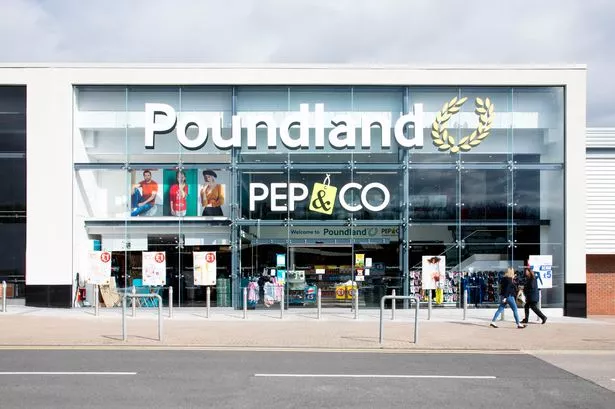

Retail & Consumer
Poundland owner Pepco reports £458.7m loss amid declining UK sales
Pepco, the discount retail giant and owner of Poundland, has reported a loss exceeding £450m following a weak performance from its UK subsidiary, Poundland. The European group revealed a pre-tax loss of €554m (£458.7m) for the year ending 30 September 2024, a stark contrast to the profit of €159m (£131.6m) it made in the previous year. This loss was largely due to a non-cash impairment charge of €775m (£641.8m) booked for Poundland after a significant drop in performance. The UK brand's like-for-like sales fell by 3.6% over the year, and its profit outlook weakened amid rising competition and costs, as reported by City AM. Non-executive chairman Andy Bond expressed renewed confidence in the future, stating: "I am proud of the progress we have made over the last 12 months." He added: "We grew underlying EBITDA by a quarter to €944m across the group, ahead of expectations, with a strong recovery in gross margin of almost 400 basis points, driven by the performance of our core Pepco brand." He concluded by outlining the objectives achieved during the year, which included rebuilding Pepco’s profitability in its core Central and Eastern European (CEE) market, recovering gross margin, adopting a more disciplined approach to investment, reviewing underperforming areas of the business, and delivering stronger cash generation. "We have delivered on these objectives, but there remains more to achieve." "As a result of renewed confidence in our future, we are announcing an inaugural full year dividend for the Group." "I am pleased to have handed the reins of the business over to our new CEO, Stephan Borchert, effective 1 October, 2024." "Stephan brings a wealth of experience in retail businesses internationally alongside a strong track record of delivering results, and I look forward to working with him as he leads this business to future success." Despite the pre-tax loss, Pepco Group pointed to its record underlying EBITDA (earnings before interest, taxes, depreciation and amortisation) for the year which rose by 25.2 per cent to €944m. It also announced an inaugural full-year dividend "reflecting the group’s free cash generation, strong balance sheet and increasing confidence in its outlook". Chief executive Stephan Borchert added: "Pepco Group has very attractive, market-leading retail businesses, providing great product range, value and convenience to over 60m customers each month across Europe. ". "Within the group, I see the Pepco concept itself as our key engine for future strategic and financial growth, particularly in Pepco’s CEE heartland." "Pepco generates the vast majority of the group’s earnings and our highest returns on capital – we plan to further build on that strong base." "In the year ahead, our core focus at Pepco will be to deliver improved like-for-like revenues." "Pepco’s like-for-like performance has been positive since the start of September – an encouraging start." "At Poundland, recent performance has been very challenging, impacted by declines in clothing and general merchandise following the transition to Pepco-sourced product ranges at the start of the year." "We are taking swift action to get Poundland performance back on track, focusing on a return to Poundland’s strengths. " "We will also closely evaluate Poundland’s overall competitive positioning and requirements for future success as an FMCG-led format." "We will provide further updates on Poundland during the first half of 2025. " "I am excited to join Pepco Group at this important stage in its evolution toward a company focused on targeted new-store expansion, higher capital returns, and growing earnings and free cash flow."


Retail & Consumer
Marie Claire and Go Compare owner sees profits dip but returns to revenue growth
Publishing giant Future Plc has reported a dip in profits for the financial year but saw its revenue return to growth over the period. The Bath-based company, which owns brands including Marie Claire, Country Life and Go Compare, said it had made "good strategic progress" over the year ended September 30. Adjusted operating profit at the firm was £222.2m - down from £256.4m the year before. Revenues were broadly flat at £788.2m, with +1% organic growth. UK revenue grew by 6% on an organic basis, with "very strong growth" in Go.Compare, the company said on Thursday. Future reported business-to-business growth of +2% although business-to-consumer saw a 6% decline, impacted by market conditions and the weight of magazines. Meanwhile, the company's US revenue fell by 6% on an organic basis. Future said profitability remained in line with expectations. Jon Steinberg, who is stepping down as Future's chief executive next year, said: “We launched our Growth Acceleration Strategy one year ago and have made good strategic progress. We have invested in sales and editorial roles, successfully diversified and grown revenue per user, and we have further optimised our portfolio. "Importantly, the group has returned to organic revenue growth during the year, underpinned by a strong H2 performance. The execution of our strategy combined with our strong financial characteristics, including a flexible cost base and highly cash generative profile, creates further optionality and positions the business well." The announcement comes a year after Future launched its Growth Acceleration Strategy in a bid to capitalise on opportunities in "attractive and growing markets". The business said two-year investment programme of £25m-£30m had helped it return to growth.


Retail & Consumer
Naked Wines slashes losses to £5.6m after 'solid' trading during peak period
The CEO of Naked Wines has stated that the company is "in a better position, both financially and strategically" after significantly reducing its losses in the first half of its financial year. The Norwich-based firm reported a pre-tax loss of £5.6m for the six months to 30 September, 2024, a decrease from the £9.7m loss it recorded for the same period in 2023, as reported by City AM. However, Naked Wines also saw its revenue drop from £132.3m to £112.3m. These half-year results follow the appointments of Rodrigo Maza as CEO in April and Dominic Neary as CFO in November. Maza commented: "Naked Wines is in a better position, both financially and strategically." "We now have robust financial foundations, and our members remain loyal and engaged." "Our strategic initiatives centred around customer acquisition and retention are generating learnings, and we are currently experiencing solid trading during the peak season period." "I am pleased to welcome Dominic as our new CFO. His experience in digital and international businesses have helped him quickly transition, and I look forward to working with him as we focus the business on cash, profitability and growth." Regarding its future prospects, Naked Wines noted that its early peak season trading has been "solid" and its liquidity and cash situation is "continuing to improve". It anticipates that its full-year performance will align with previous guidance. However, the company acknowledged that its US inventory, "whilst in line with previously communicated plans, remains overstocked". Naked Wines has stated it is "reviewing options" to free up capital from its inventory, a strategy aimed at enhancing cash flow over the next two years. However, this could lead to higher liquidation costs and potentially result in EBIT at the lower end of guidance.
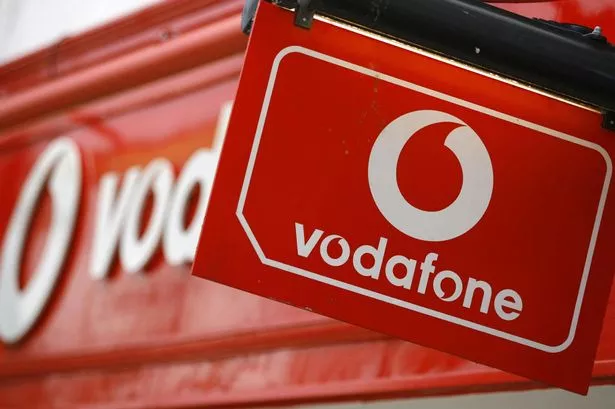

Retail & Consumer
Vodafone hit with £120m lawsuit by 61 franchisees across UK
A collective of Vodafone franchisees throughout the UK have initiated a multi-million-pound lawsuit against the telecommunications behemoth, citing "bad faith" in business dealings. The legal claim, exceeding £120 million, was lodged at the Commercial Court of the High Court by IBB Law on behalf of 61 current and former Vodafone franchisees, as reported by City AM. The franchisees are accusing Vodafone of violating their duty of good faith and the stipulations of the Franchise Agreement, alleging that since July 2020, Vodafone has enforced unreasonable and capricious business decisions upon them. It has been noted that Vodafone recently withdrew from the British Franchise Association, an organisation dedicated to ethical franchising standards within the UK. The case against Vodafone includes several charges, among them is the accusation that franchisees were enticed into the programme with promises of unlimited earning potential, yet frequently faced commission structures that rendered their outlets unprofitable. Furthermore, the claimants argue that Vodafone unjustly profited from government-provided business rate relief during the Covid pandemic, funds that were meant to support the franchisees in times of economic hardship. One franchisee, Andrew Kerr from Northern Ireland, shared his experience: "It started off as a dream – and it’s ended up as a nightmare that haunts me every day. I felt I became Vodafone’s piggy bank. They pushed me to the point of financial ruin, and then took away my stores leaving me in crippling debt." A collective of franchisees independently sought legal guidance in October 2022 before forming a group, which has since initiated a legal claim through IBB Law. In response to these accusations, Vodafone has issued a denial. The telecommunications giant's choice for legal representation remains undisclosed. A spokesperson from Vodafone commented on the matter: "We are aware of the allegations and take them very seriously, and we are sorry to any franchisee who has had a difficult experience. While we have acknowledged challenges were faced by some franchisees, we strongly refute claims that Vodafone has ‘unjustly enriched’ itself at the expense of small businesses." "Our franchise model is a commercial relationship. We offer our franchise partners a large amount of cost-free support, but, as with any business, commercial success is not guaranteed. The majority of franchise partners are profitable and there is strong demand among our current franchisees to take on new stores". "We maintain that where issues have been raised, we have sought to rectify these and believe we have treated our franchisees fairly," they concluded.
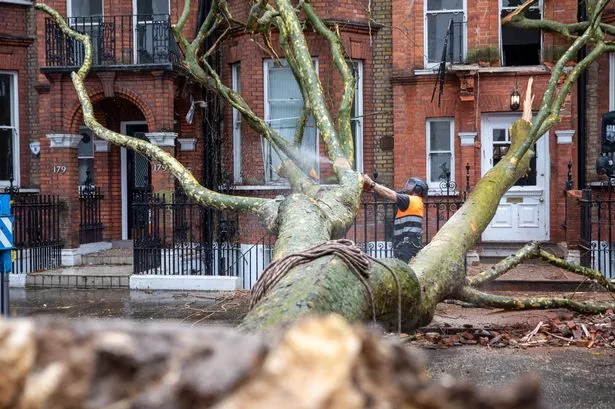

Retail & Consumer
Train company says 'do not attempt to travel' as multiple lines closed
Train services in parts of England and Wales remain disrupted following Storm Darragh, with several lines closed due to fallen trees and debris. Great Western Railway said passengers should “not attempt to travel” between Swansea and Carmarthen until at least noon, or on the Looe, St Ives and Gunnislake branch lines in Cornwall until at least 11am. The Barnstaple and Okehampton branch lines in Devon are expected to be open by 8am following safety checks. Westbury and Chippenham stations in Wiltshire have reopened following storm damage, and services have resumed on the Falmouth branch line in Cornwall. Passengers who choose not to travel on Monday can claim a full refund on their ticket or travel on Tuesday. Damage caused by Storm Darragh means the railway line between Stafford and Stoke-on-Trent remains closed. This is affecting London Northwestern Railway services between Stafford and Crewe, and CrossCountry trains connecting Manchester Piccadilly with stations such as Paignton, Bournemouth, Southampton Central, Bristol Temple Meads and Birmingham New Street. London Northwestern Railway passengers can use rail replacement transport between Wolverhampton and Crewe. Affected CrossCountry services will be diverted via Crewe and will not call at Stoke-on-Trent or Macclesfield. Rail replacement transport is operating between Stafford and Stoke-on-Trent. Transport for Wales said all railway lines are blocked on 11 routes, such as between Swansea and Milford Haven, between Swansea and Shrewsbury, between Birmingham International and Shrewsbury, and between Chester and Holyhead. Following major disruption from Storm Darragh over the weekend, National Rail Enquiries warned “services may be busier than normal today and experience severe overcrowding”. West Midlands Railway is unable to operate on the line serving Bromsgrove, Redditch, Birmingham New Street and Lichfield Trent Valley because of damage to overhead electric wires. Passengers were warned to expect cancellations and delays to train services on the West Coast Main Line between London Euston and Scotland early on Monday. Network Rail said this is because it is completing repairs to overhead line equipment in Polesworth, Warwickshire. Services are being diverted via Birmingham while the work is taking place. Chris Baughan, Network Rail’s West Coast South route operations manager, said: “Storm Darragh has wreaked havoc on the railway this weekend and we are very sorry to passengers for the disruption to train services this morning on the West Coast Main Line as frontline teams continue with emergency repairs and the clean-up.
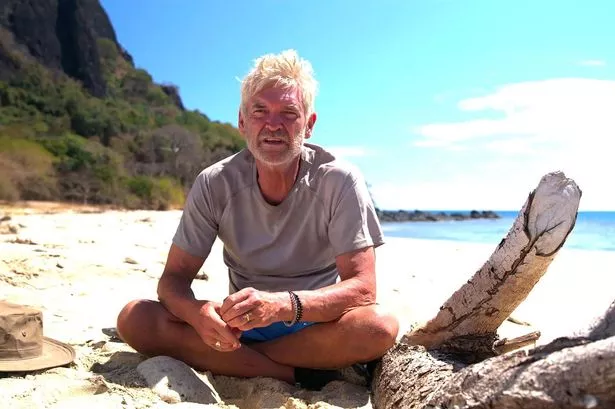

Retail & Consumer
Channel 5 loses £160m in major blow ahead of major rebrand
Channel 5 has maintained that its operating model remains stable despite revealing a loss of nearly £160m in 2023. The channel, which is set to rebrand as '5' in April 2025, attributed the loss to a £273m impairment in the value of its investment in Viacom Interactive, a subsidiary of parent company Paramount Global, and not to Channel 5’s trading business. This led to a pre-tax loss of £159.5m for 2023, following a pre-tax profit of £78.1m in 2022. Recently filed accounts with Companies House show a rise in turnover from £370m to £398m, boosted by a payment of £80.9m, plus £9.1m in interest, from Channel 5’s sales partner due to a correction in that firm’s internal reporting between 2017 and 2023, as reported by City AM. Excluding this payment, the channel’s turnover totalled £318m. The channel’s operating profit increased from £80.1m to £112.4m in the year. However, excluding the payment, its profit totalled £22.7m. The 2023 results were made public after being filed with Companies House on 6 December, past the 30 September deadline. A statement approved by the board said: "Despite the tough commercial environment, Channel 5’s portfolio – which includes 5STAR, 5USA, 5Select and 5ACTION – achieved a fifth consecutive year of share growth (five per cent), making it the only public service broadcaster (PSB) to increase its total share of the UK viewing audience." "In addition, Channel 5 was the only commercial PSB to increase its audience share in peak time (one per cent) as well as its share of ABC1 viewers in peak time (four per cent)." "For a fourth consecutive year, My5 achieved growth in its viewing, reflecting the success of the free streaming service and the appeal of Channel 5’s content to a streaming audience." On its future, the business added: "Looking ahead, the business continues to work to future proof its offering and enhance the experience for viewers, advertisers and content partners."
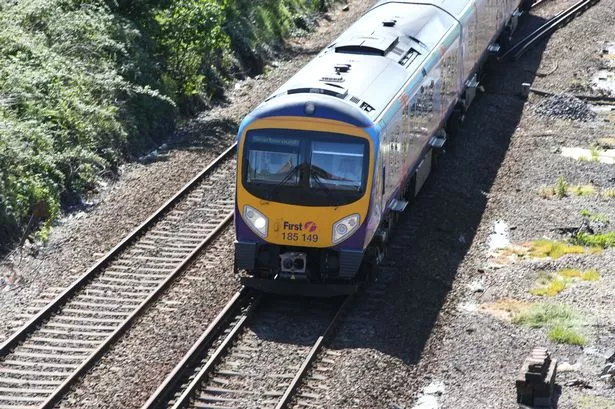

Retail & Consumer
FirstGroup buys one of London's biggest bus operators in £90m deal
Transport heavyweight Firstgroup has made a strategic move into the London bus sector with the acquisition of one of the city's major operators. The Aberdeen-headquartered company, listed on the London Stock Exchange, announced on Tuesday that it had inked a £90m deal to acquire RATP London from its current owner, RATP Group, which is owned by the French state, as reported by City AM. The merger news, still pending approval from the French government and Transport for London (TfL), boosted Firstgroup's shares by over four percent in early trading. RATP London commands approximately 12 percent of the London bus market share. While TfL operates the majority of the bus network, other private firms such as Arriva and Go-Ahead Group also play significant roles. "This is a significant acquisition for the group that will diversify our portfolio and materially grow our earnings in the medium term," commented Graham Sutherland, CEO of Firstgroup. "It allows us to enter the London bus market at scale and will also bolster our credentials as we participate in future franchising opportunities across the UK," he further elaborated. Upon successful completion of the deal, Firstgroup will take over RATP’s 10 depots situated in Central and West London, as well as around 1,000 buses, a third of which are fully electric. RATP's workforce in London numbers 3,700, with over 80 percent being drivers. Last year, the company reported revenues of £271m. This announcement comes shortly after Firstgroup, part of the FTSE 250 index, revealed its acquisition of the open-access rail operator Grand Union Trains.


Retail & Consumer
British American Tobacco says smokeless products gamble is paying off
British American Tobacco (BAT), the owner of Pall Mall and Lucky Strike, has reported strong results from its shift to smokeless products as it awaits further updates on its legal action in Canada. The company confirmed in a trading update that it would deliver full-year results in line with guidance, as trading in the second half had grown in line with expectations, as reported by City AM. BAT is currently awaiting the conclusion of negotiations over a five-year legal process involving its subsidiary Imperial Tobacco Canada Limited obtaining creditor protection under the Canadian Companies’ Creditors Arrangement Act. The cigarette manufacturer's full-year results for 2024 are due in February, where it said there would be "more clarity" on the ongoing Canadian litigation. Shares in BAT hit a two-high at the end of November as investors started to buy into the group’s shift away from traditional tobacco products such as cigarettes. "[The results] have seen the firm use cost cuts and price increases so it can offset falling stick volumes and still generate fat profits and copious cash flow," said Dannis Hewson, AJ Bell’s head of financial analysis. The company has been increasingly pivoting towards vapes and the oral market in recent years in an attempt to pull away from the slowly dwindling number of smokers. British American Tobacco's chief executive, Tadeu Marroco, stated: "We continue to make progress towards our ambition of becoming a predominantly smokeless business by 2035." He added: "We are making further progress increasing profitability across new categories, and I am particularly pleased with the improvements in heated products and modern oral."